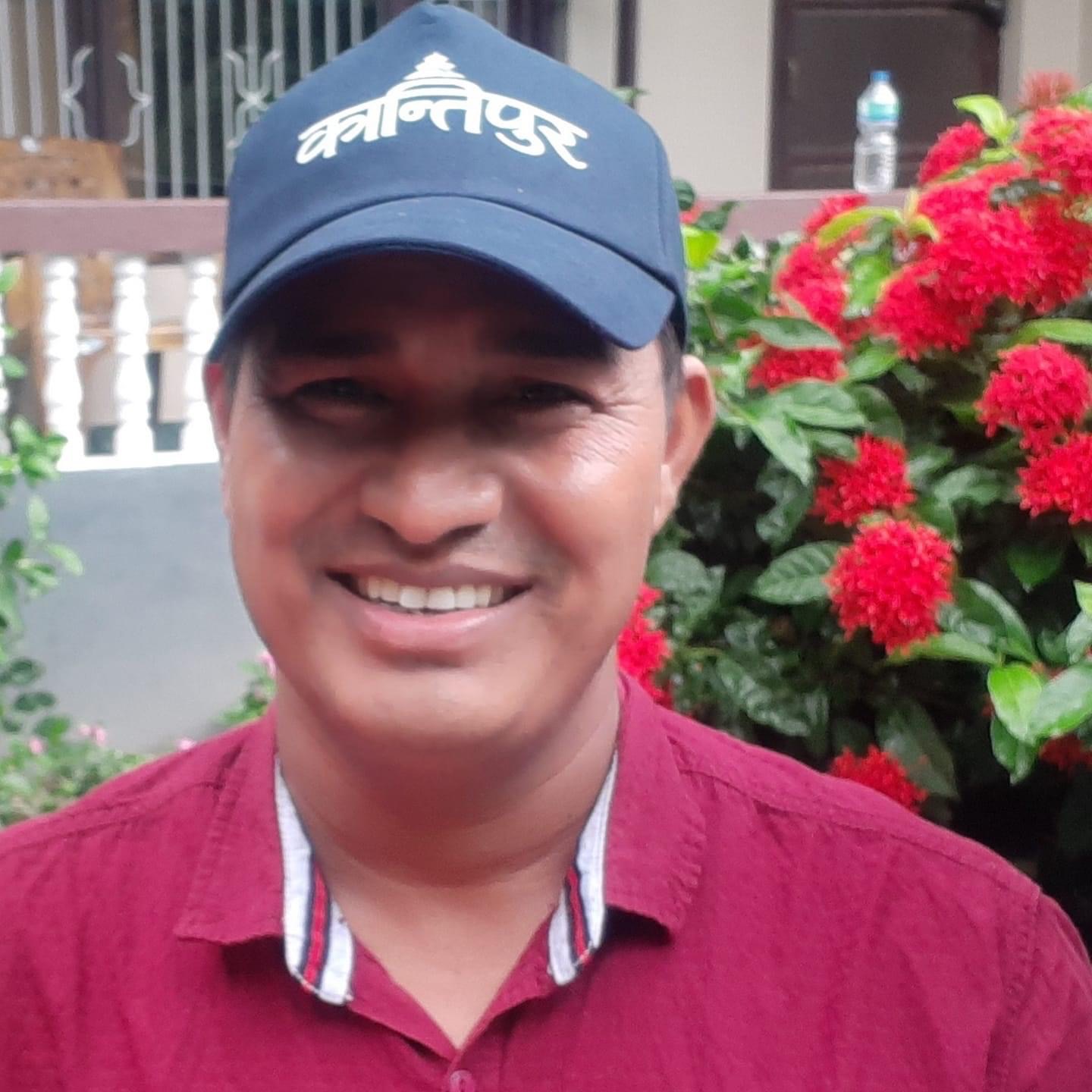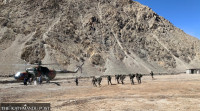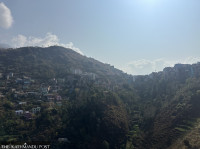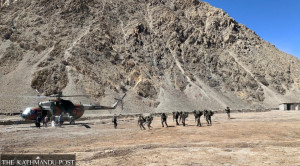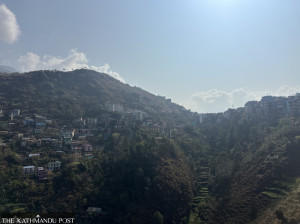Karnali Province
Karnali government’s Integrated Settlement Development Programme fails to move beyond paper
Under the programme, settlements at high risk of floods and landslides were to be moved to safer locations.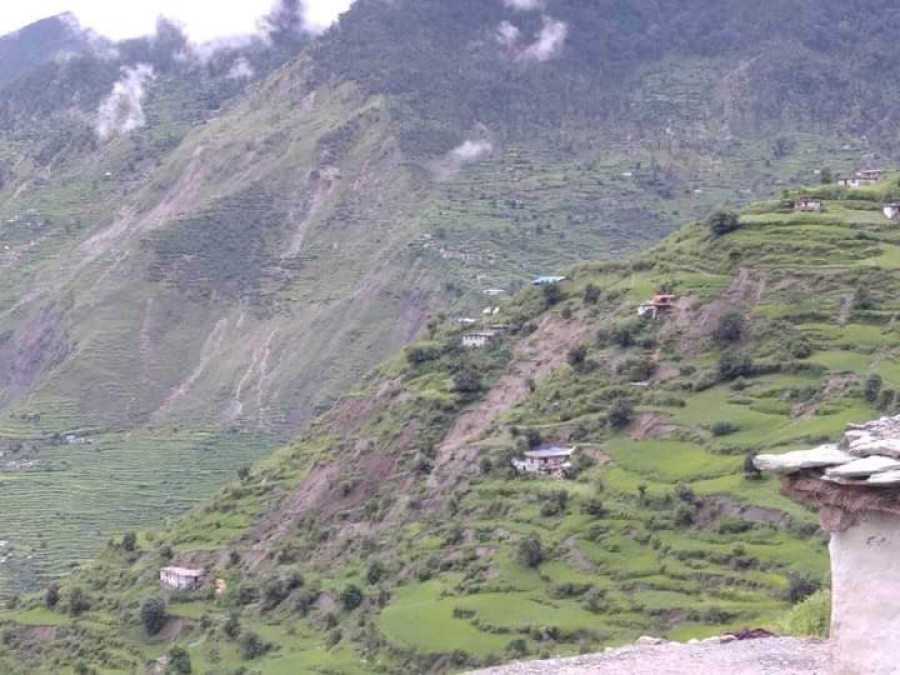
Kalendra Sejuwal
For Dirgharaj Shahi, a local of Raskot Municipality in Kalikot, monsoons are ruthless and unforgiving. Multiple landslides over the past few years have displaced many families from his settlement in Badaltola.
“We live in constant fear of landslides during the monsoons. Our houses are at risk of being swept away any moment,” he said. “Some of our neighbours have lost their houses and properties and now live in makeshift huts. None of the government bodies has provided them or us with a better alternative.”
In the last week of July, Badaltola was battered by a landslide that killed five members of the same family and displaced 18 other households. It is one of the twelve locations in the municipality selected as safe zones to relocate displaced landslide victims under the provincial government’s Integrated Settlement Development Programme.
The programme was initiated by the Karnali provincial government in the last fiscal year wherein settlements at high risk of floods and landslides were to be moved to safer locations. The programme, however, is yet to be implemented successfully.
On December 15, 2019, a Cabinet meeting had endorsed a working guideline to develop integrated settlements for displaced landslide and flood victims and to relocate settlements at high risk of monsoon-induced disasters. The guideline has also prioritised landless squatters, Dalits, and the marginalised.
According to the working guideline, the local units have to select safer locations to relocate displaced landslide victims on the basis of the recommendation from geologists, environmentalists, and technical teams.
“We thought Badaltola was less prone to landslides and had planned to move flood and landslide victims there. But the entire ward was affected by this year’s monsoon,” said Kashi Chandra Baral, mayor of Raskot Municipality.
According to him, the local unit had selected Badaltola without conducting a geological survey, as dictated by the guidelines, since the local unit did not have the means to hire geologists, environmentalists or a technical team.
“The local units alone can’t implement the programme,” Dipendra Rokaya, a member of the Karnali Province’s planning commission, told the Post. “The provincial government had planned to call an expert team for survey and land use management in Karnali but the federal government did not respond to our request.”
A 10-member project coordination committee led by the Chief Minister of the province, Mahendra Bahadur Shahi, was formed to implement the programme. According to Keshav Prasad Upadhayay, spokesperson of the Chief Minister’s Office, the programme has not taken off because the local level governments are yet to submit the details of risk-prone settlements to the Chief Minister’s Office.
“According to the working guideline, the local units have to assess the risk and submit the details to us but we haven’t received the data yet,” Shahi said.
In the last fiscal year, the provincial government had notified all 79 local units of the province to identify settlements at high risk of floods and landslides. Out of the 79 local units, Dullu and Chamudabindrasaini of Dailekh, Tajakot and Chankheli of Humla, Thulibheri of Rukum (West), Raskot of Kalikot and Khatyad of Mugu responded to the provincial government’s directive.
The government had allocated Rs 254 million for the programme that would cover all 79 local units; however, only five local units among the seven interested received Rs 1.8 million budget each to conduct a feasibility study of the land.
“We had recommended that 90 houses of Puchchhegaun, which is at high risk of landslide, should be shifted to safer locations but before they could be moved, 651 other families have been displaced this monsoon,” said Mayor Baral.
The programme at Tajakot in Humla has also come to a standstill for a lack of safe locations to relocate landslide-prone settlements. Lal Prasad Dhakal, chief administrative officer of Tajakot Municipality, said, “The locations we had selected as ‘safe zones’ witnessed multiple landslides this monsoon. We, therefore, haven’t been able to resettle the previously displaced households in Tajakot.”
According to the Karnali Provincial Police Office in Surkhet, floods and landslides in various parts of the province have destroyed 91 houses and displaced 2,942 families since mid-April. SSP Rajesh Bastola, spokesperson at the office, said, “Fifty-one individuals in the province were killed and nine are still missing in this monsoon’s floods and landslides.”
According to the working guideline of the Integrated Settlement Development Programme, the programme should be implemented in all 10 districts of Karnali Province. The guideline also states that the settlements should be set up in locations that have access to road, drinking water, drainage and electricity supply and other basic facilities.




 20.53°C Kathmandu
20.53°C Kathmandu